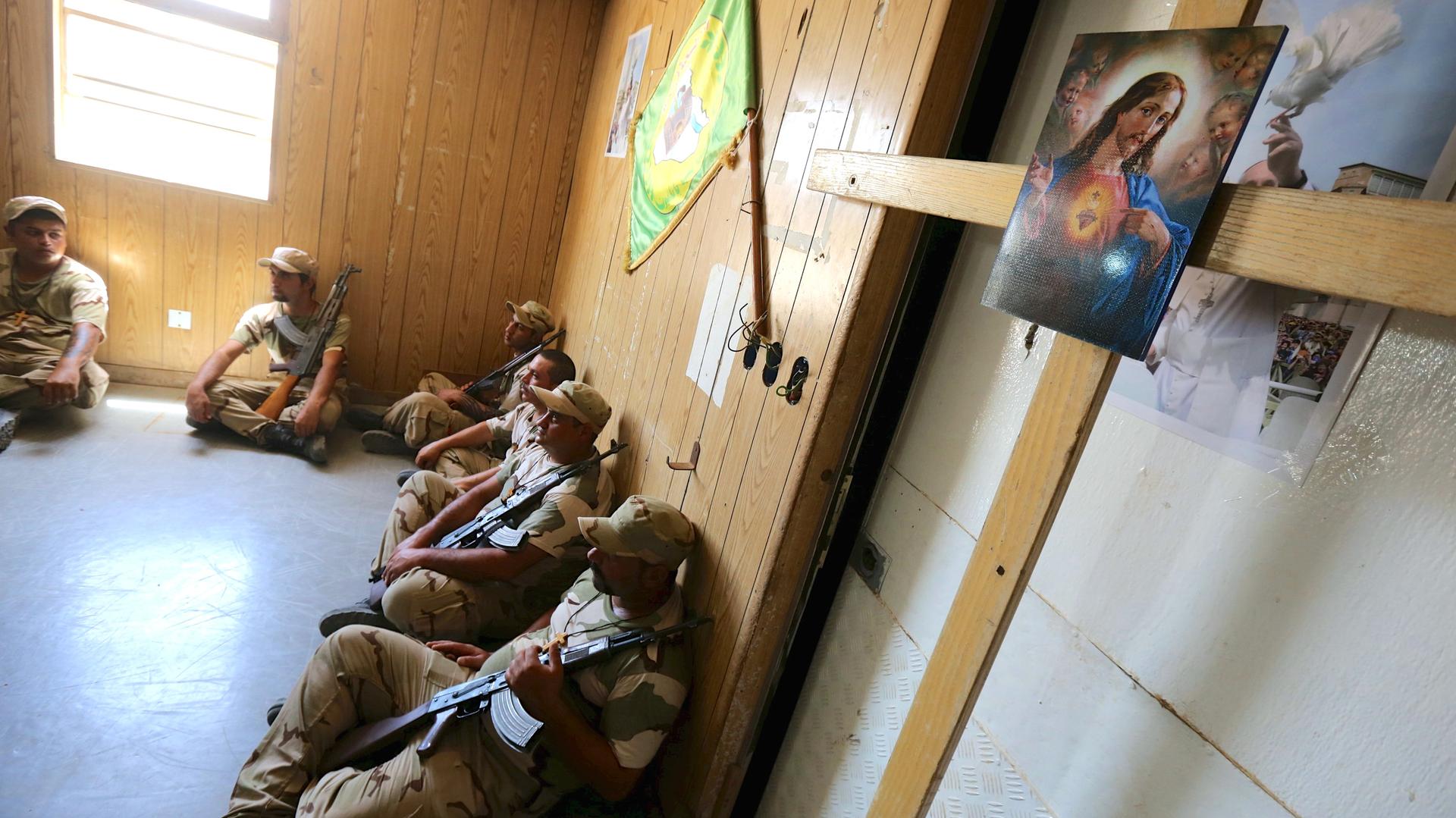Iraqi Christian volunteers, part of a militia allied with Iraqi military forces against the extremists of ISIS, take a rest during training in a military camp in Baghdad on July 1, 2015.
Crucifixion. Enslavement. Beheadings. These are some of the tools of terror used by ISIS and other extremist groups that are driving Iraqi and Syrian Christians out of some of the oldest Christian communities on earth.
“We’re certainly looking at the potential end of Christianity in the Middle East if no one does anything to protect these ancient communities that are dwindling now,” says Eliza Griswold.
Griswold has a story in the latest issue of the New York Times Magazine about the imperiled Christians of Iraq and Syria. She is also the author of The Tenth Parallel: Dispatches Between Christianity and Islam.
The radicals of ISIS are not too discriminating with their medieval brutality. The majority of those displaced in Iraq and Syria have been fellow Sunni Muslims. But members of religious and ethnic minority groups, including the Kurds, the Shia, the Yazidis and Christians, are shown little mercy when they find themselves caught under the rulers of the so-called Islamic State.
“They go after anyone who challenges them,” Griswold says. But adds that, “ISIS and its ilk sees Christians as tied to the West and they become the easiest scapegoat.”
As with other minority groups, the fighters of ISIS see Christian families as a source of wealth. “Under ISIS propaganda, if a Christian does not convert to Islam, it is legitimate to make them pay a tax, to enslave them, to kill the men and to seize the women and children as war booty, and to seize their money. So, a lot of this [propaganda] is to legitimize robbery as well,” she says.
But the rise of ISIS is just the latest disaster to befall the Christians of the Middle East. The US-led invasion of Iraq in 2003 was very bad news for the Christian community, which numbered about 1.5 million at the time.
“Like the rest of Iraq’s population, Christians encountered violence and terrorism after 2003, but they suffered disproportionately,” writes Zaid al-Ali in The Struggle for Iraq’s Future.
“First, religion was often used by ordinary criminals as a pretext to target Christians, even when they were only interested in their cash and possessions. Secondly, as a small minority (around 3 percent of the population) Christians were unable to defend themselves as the state broke down completely and the US occupation forces were unable (or unwilling) to protect anyone.”
An estimated 1 million Iraqi Christians — two-thirds of the pre-war population — fled the country in the years after the US invasion and subsequent fall of Saddam Hussein. Many of them fled to Syria. “Then we had the Arab Spring and what looked from a distance like, ‘Oh, here comes a plural moment of democracy for the Middle East and North Africa,’ served the region’s minorities very, very badly,” Griswold says.
When the Syrian civil war kicked off in 2011, Christians tended to support the government of Bashar al-Assad as their best hope for some protection. As a result, ISIS and other pro-revolution factions have viewed Christians as the enemy.
“We’re seeing the fallout of the US invasion, the fallout of the Arab Spring,” Grisworld says. “And now we’re seeing ISIS as the latest driver of what’s really sending Christians out of the Middle East.”
Every day, reporters and producers at The World are hard at work bringing you human-centered news from across the globe. But we can’t do it without you. We need your support to ensure we can continue this work for another year.
Make a gift today, and you’ll help us unlock a matching gift of $67,000!
